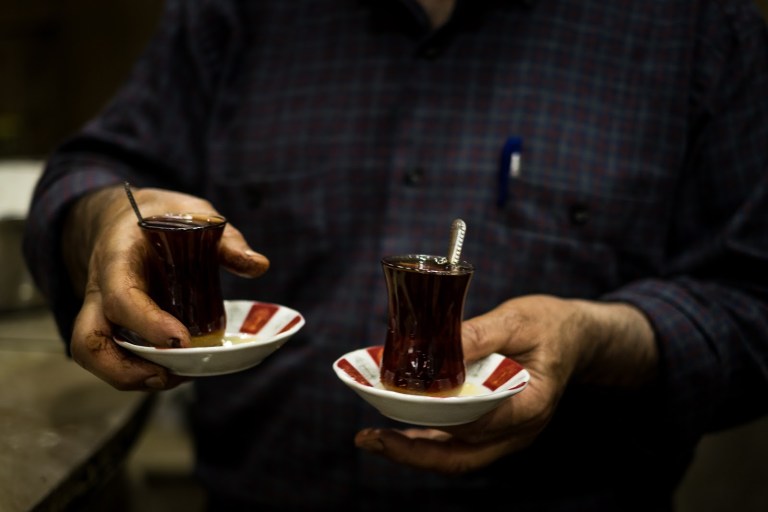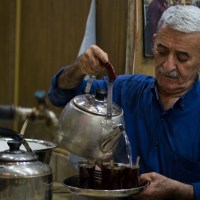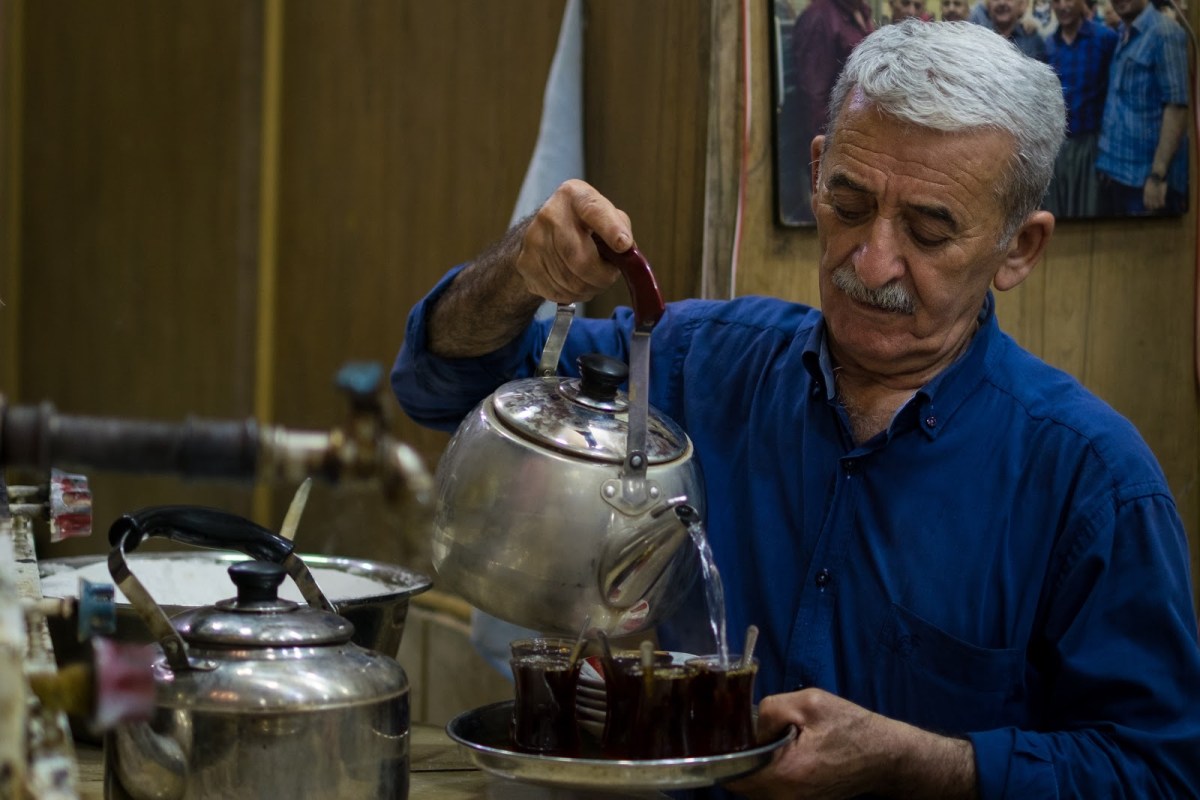“I’ve served tea here for 50 years. It’s the oldest tea shop in town.”
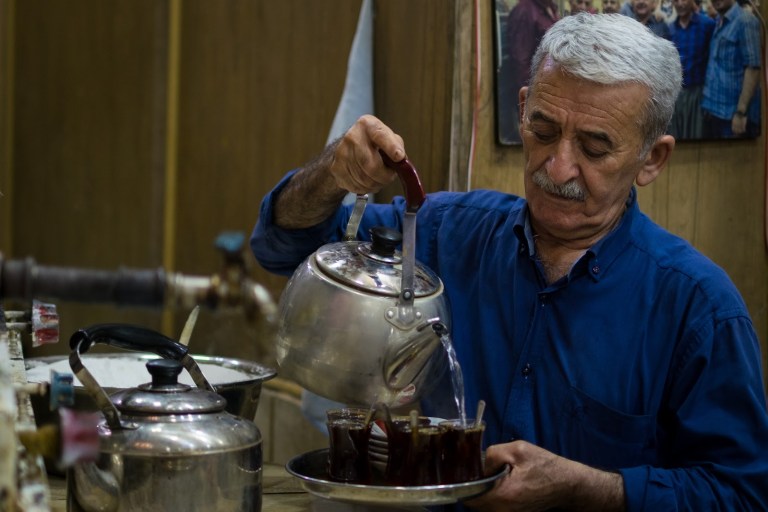
The tea master’s hands moved quickly around the sink, balancing tinkling glass and metal on a tray he whisked away to serve another table. He returned, glanced at me as though surprised I was still there, and began washing dishes. I just sat there, watching him work.
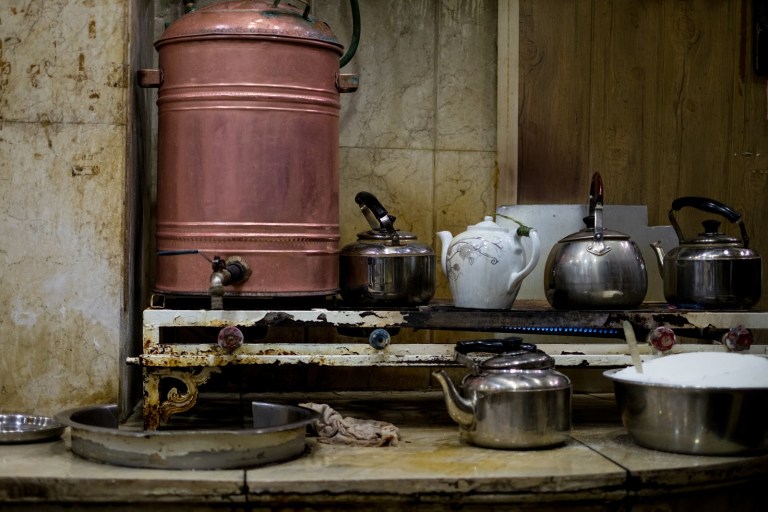
When I first moved to Iraq, I felt so awkward in these situations. Sitting, waiting, purposelessly filling silent space can be uncomfortable, but I’ve found people here actually don’t mind. Their hospitality is stronger than the awkwardness of any foreigner, and the longer I sat by that sink, the more the tea master opened up.
He told me the tea house is called Shaab, and it was founded in 1950.
“For us, this shop is a place for culture. This country is always changing. I remember the British coming, I remember the king. Did you know there was a king here before Saddam?”
I told him I did, but I was far too young to remember it. He laughed without making a sound and darted away to serve another table.
I sat listening to the hum of the cafe. Sixty-eight years of conversation right here, and it’s easy to imagine, heads leaned in close…
Did you hear the British installed a king down in Baghdad?
Did you hear the Americans are attacking from Kuwait?
Did you hear Saddam’s been found?
Did you hear terrorists have captured Mosul and are coming this way?
“If these walls could talk,” says the tea master, “they would tell you it’s the place where Kurdish history has been made, culture created and preserved.”
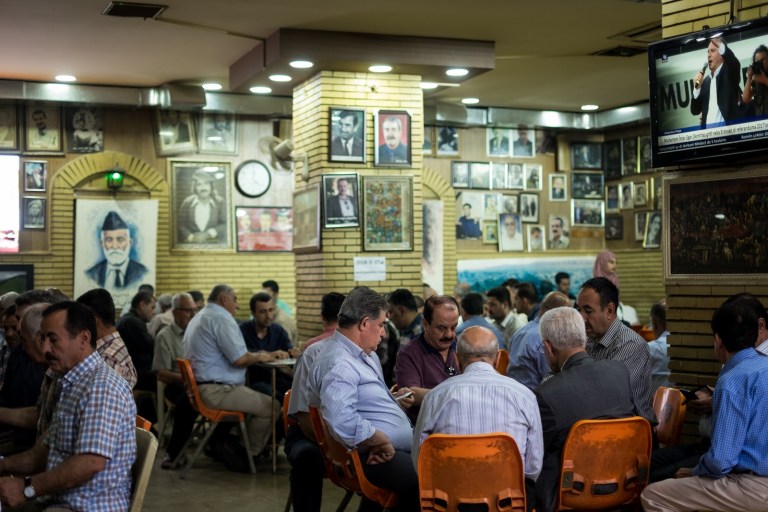
The ambience is a mesmerizing roar of laughter, dominoes slapped against tables, heated debate, traditional Arabic music coughed out of an old radio, and of course, tiny spoons clinking against glass, stirring sugar into hot tea.
The walls of the shop are striking. So many stern-faced men and women—poets, politicians, and revolutionaries of every stripe. There are communists and fascists and democrats alike on these walls, Arabs and Kurds, people from Iran, Turkey, and Iraq. But the majority are notable Kurds.
The tea master is proud of this openness. A few years back, he told a journalist, “This is a democratic teahouse. We take in everyone and anyone. We don’t care about their religion or their politics. We just serve tea.”
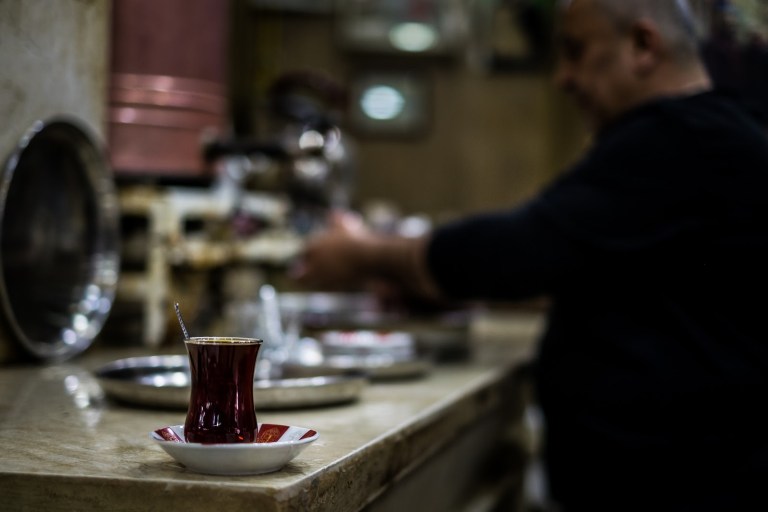
While waiting for the tea master to return from serving tables, I noticed his assistant’s hands. The burly man held them up proudly, saying “I’ve made thousands of pots of tea with these!”
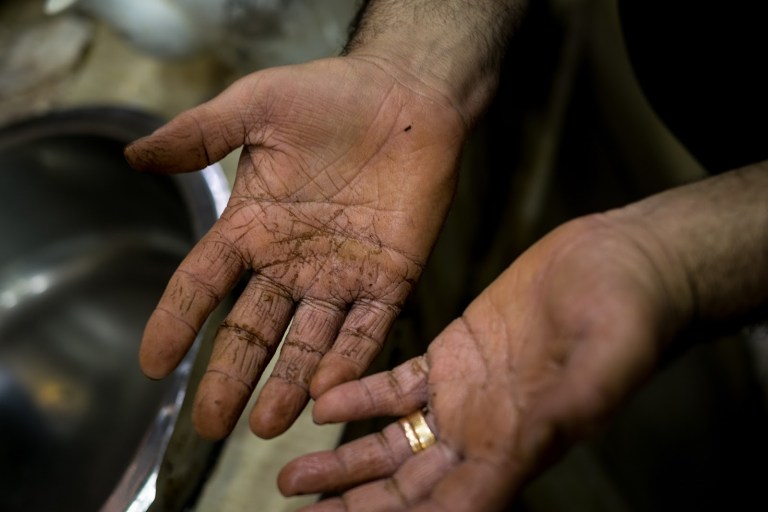
Chapped, burned, calloused—the man beamed up at me, clearly proud of his ruined hands. Other workers started lining up to show theirs too.
It’s clearly a badge of honor, proof they take their craft seriously.
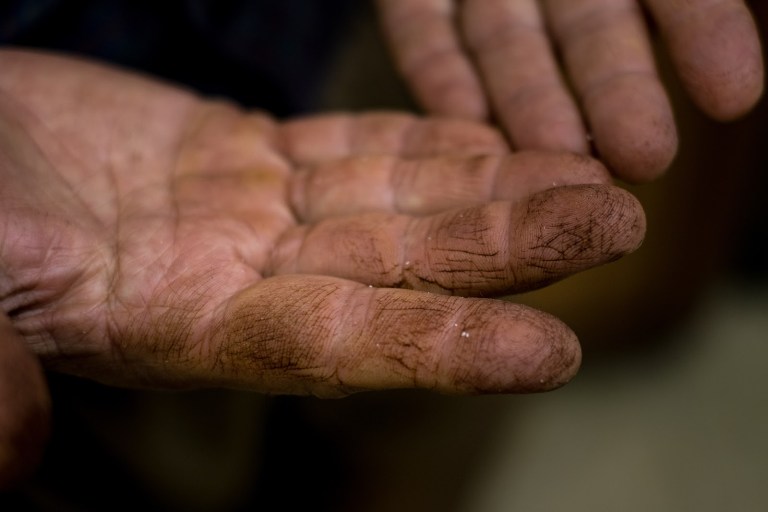
The tea master sidled up to us and finally sat down, showing me his own tannin-stained hands. Tea tattoos. I drained my glass and forced the tea master to let me pay my bill.
Before leaving, I asked, “Why tea, of all things? Why is tea so important to people here?”
The teamaster responded as though this was a very silly question—and maybe it was.
“Around here, tea isn’t just a drink. Tea is life.”
